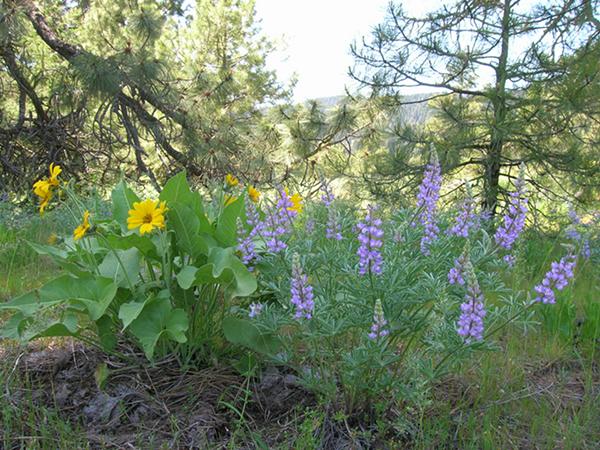Mt. Hood puts the brakes on motorized abuse
The Forest Service has released its plan to keep OHVs out of pristine forests and popular hiking areas.

Gibson Prairie, one of the special places on Mt. Hood no longer at risk from OHV damage.
Portland, OR- 8/26/10- On Friday Mt. Hood National Forest will publish its plan for the management of off-highway vehicles (OHVs) such as ATVs and dirt bikes. The OHV Plan provides for a total of 146 miles for OHV routes on roads and trails in four areas of the forest.
“This decision is a step in the right direction for protecting our drinking water and a victory for the hikers, campers, and anglers who love Mt. Hood,” says Lori Ann Burd, Restore Mt. Hood Campaign Manager and Staff Attorney at Bark. “I’ve been hiking in Mt. Hood all of my life,” says Tom Kloster, a transportation planner and founder of the Mt. Hood National Park Campaign, “and I am relieved that this decision will protect special places like the Surveyor’s Ridge trail and the recently reopened route to Owl Point from being overrun by ATVs and dirt bikes.”
Ninety-eight percent of Mt. Hood is someone’s drinking water source.1 Retired firefighter Mitch Williams notes that “around my community on Mt. Hood I have seen ATV use seriously harm streams and scare off wildlife. I hope this decision will reduce the damage to our drinking water sources, wildlife habitats, and watersheds.”
Tom Wolf, who chairs Trout Unlimited’s Oregon Council, agrees that this plan is an important step for both our waterways and recreationists. “Anglers will be relieved to know they can visit Mt. Hood to enjoy a relaxing day on the river free from the noise and pollution caused by OHVs. I’m pleased the Forest Service heard the comments of thousands of Oregonians and recognized that OHVs cause disproportionate impacts to other Forest users and the environment.”
Bark represents 3,000 members. During the public comment period for this Plan, Bark collected extensive information on the ground at all eight proposed OHV areas, assisted 21 organizations and agencies with public comments, and collected 715 comment letters from concerned citizens. Bark's mission is to transform Mt. Hood National Forest into a place where natural processes prevail, where wildlife thrives and where local communities have a social, cultural, and economic investment in the forest’s restoration and preservation.
“This decision is a step in the right direction for protecting our drinking water and a victory for the hikers, campers, and anglers who love Mt. Hood,” says Lori Ann Burd, Restore Mt. Hood Campaign Manager and Staff Attorney at Bark. “I’ve been hiking in Mt. Hood all of my life,” says Tom Kloster, a transportation planner and founder of the Mt. Hood National Park Campaign, “and I am relieved that this decision will protect special places like the Surveyor’s Ridge trail and the recently reopened route to Owl Point from being overrun by ATVs and dirt bikes.”
Ninety-eight percent of Mt. Hood is someone’s drinking water source.1 Retired firefighter Mitch Williams notes that “around my community on Mt. Hood I have seen ATV use seriously harm streams and scare off wildlife. I hope this decision will reduce the damage to our drinking water sources, wildlife habitats, and watersheds.”
Tom Wolf, who chairs Trout Unlimited’s Oregon Council, agrees that this plan is an important step for both our waterways and recreationists. “Anglers will be relieved to know they can visit Mt. Hood to enjoy a relaxing day on the river free from the noise and pollution caused by OHVs. I’m pleased the Forest Service heard the comments of thousands of Oregonians and recognized that OHVs cause disproportionate impacts to other Forest users and the environment.”
Bark represents 3,000 members. During the public comment period for this Plan, Bark collected extensive information on the ground at all eight proposed OHV areas, assisted 21 organizations and agencies with public comments, and collected 715 comment letters from concerned citizens. Bark's mission is to transform Mt. Hood National Forest into a place where natural processes prevail, where wildlife thrives and where local communities have a social, cultural, and economic investment in the forest’s restoration and preservation.
More about Mt. Hood Off-Highway Vehicle Plan...




